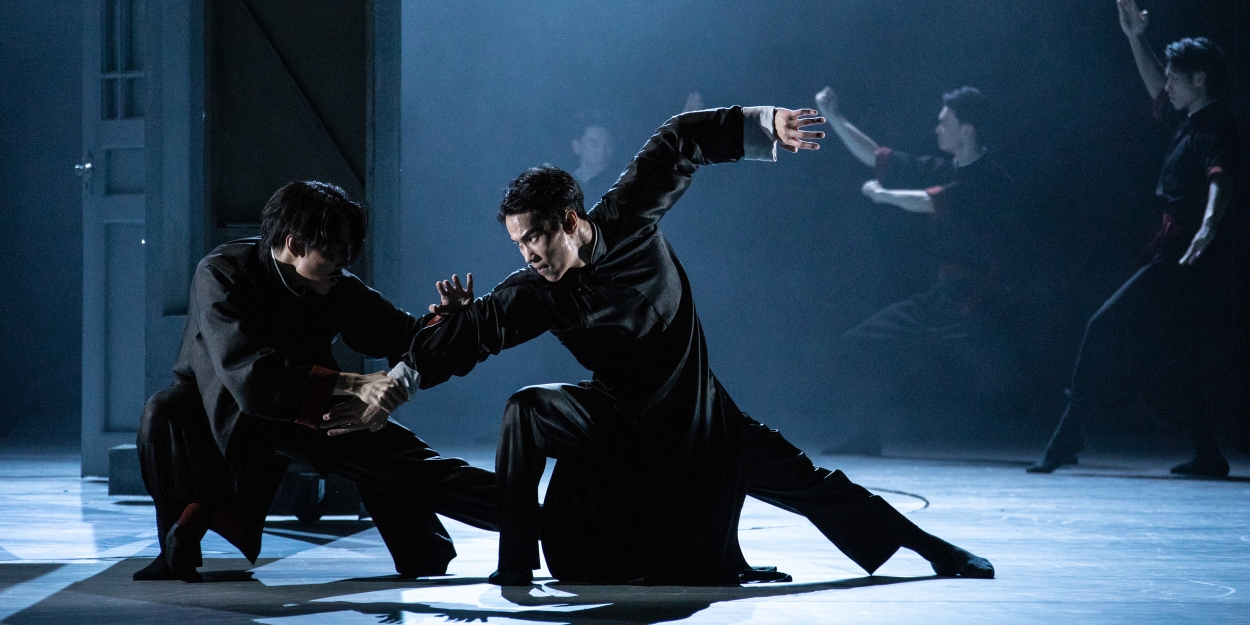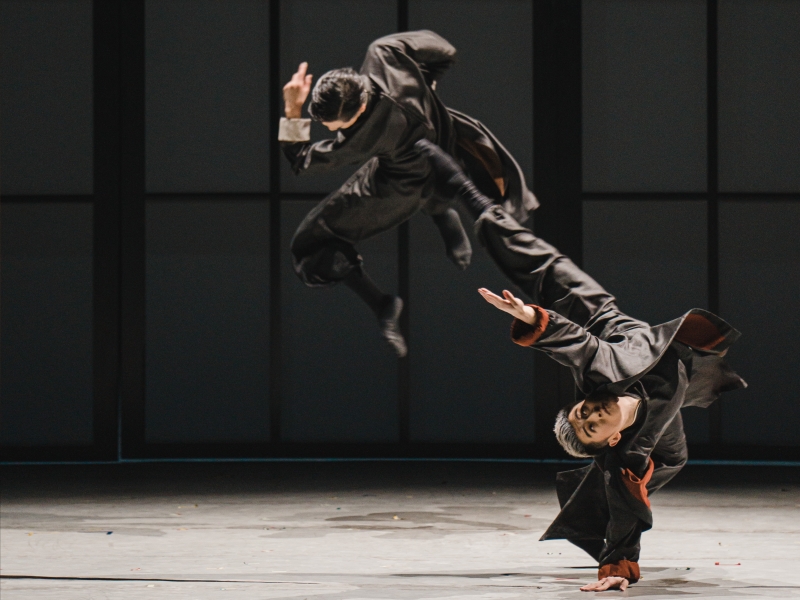Review: WING CHUN, Sadler's Wells
The dance interpretation of kung fu grandmaster and Bruce Lee mentor Yip Man's life arrives in London.

![]() Presented as a side-by-side narrative by the Shenzen Opera and Dance company, Wing Chun tells the story of kung fu grandmaster and Bruce Lee mentor Yip Man as well as that of a film crew making a movie about his life.
Presented as a side-by-side narrative by the Shenzen Opera and Dance company, Wing Chun tells the story of kung fu grandmaster and Bruce Lee mentor Yip Man as well as that of a film crew making a movie about his life.
As the martial arts master, Chang Hongji is masterful in expressing both the highs and lows of Yip’s life as he begins a new life in 1950s Hong Kong, hoping to open a new school in a city already filled with competition. Carrying around an ornate wooden nameplate, he builds up a name for himself around town when he stops bullies from attacking a young man. From there, we see him expand his enterprise, attracting more pupils to his particular style.

Alongside this story, Zhang Yashu plays an unnamed director in the 1990s, marshalling her camera and lighting operators to capture the drama while dealing with pressure and phone calls from her bosses. Her young assistant Da Chun (Fen Haoran) provides the connecting tissue between the timelines, his actions and challenges mirroring those of Yip.
Although known mainly in the West for his connections to the young Bruce Lee, Yip has a mythical status in China with many films already created around his life; Rogue One’s Donnie Yen alone has played him in four successive Ip Man movies. Bringing Yip’s story here in such a lavish production is a risk, especially through the medium of dance. Those who have seen the action-packed trailer and are looking forward to a night of frenetic punching and kicking may be disappointed - the first half only has one major fight but there is a wonderfully dynamic sequence after the interval with Yip taking on masters of praying mantis fist, tai chi, baguazhang and bajiquan.
Throughout, the movement is of a high quality. Chang is a strong leading man who, through modern dance and martial arts, takes us on a journey with him. Like any kata, his motions are fluid, strong and purposeful. Alongside him, Xu Tianhui plays his young wife Wing Sing who, we are told, eventually returns back to their home in China for health reasons.
Their interplay is sweet and soulful and the deep pain of their parting is movingly expressed. Feng is a standout as the wide-eyed Da Chun, ever eager to fight, both in his training and (when the movie is threatened with closure) to get the director and crew back together and filming. Yang Fan’s cinematic soundtrack is Hans Zimmer-adjacent in a good way, full of swooping strings and strident drums.
This is Joyway International’s second co-production at Sadler’s Wells this year after their Acrobatic Swan Lake. The company raised that bar very high with that show and its bravura display of elegance, creativity and big top skills at a level that few international companies have emulated in recent years.
Unfortunately, Wing Chun is not in the same class. More hagiography than biography, it paints a very rosy picture of Yip: at 24, Chang is currently half the age of Yip when the latter moved to Hong Kong and there is no reference to Yip’s opium addiction nor to his twenty-plus years in China working as a police officer for the right-wing Kuomintang government.
The two-hour running time is baggy in places with some scenes - including one which sees Wing Sing dancing in a paddy field - entirely superfluous to the main plot. The storyline and roles are not always clear without handy hints from the (not free) programme. Somewhere in Wing Chun is the potential for a tighter show that can pack more of a punch.
Wing Chun continues at Sadler's Wells until 7 September.
Photo credit: Wang Xufeng
Reader Reviews

Videos

